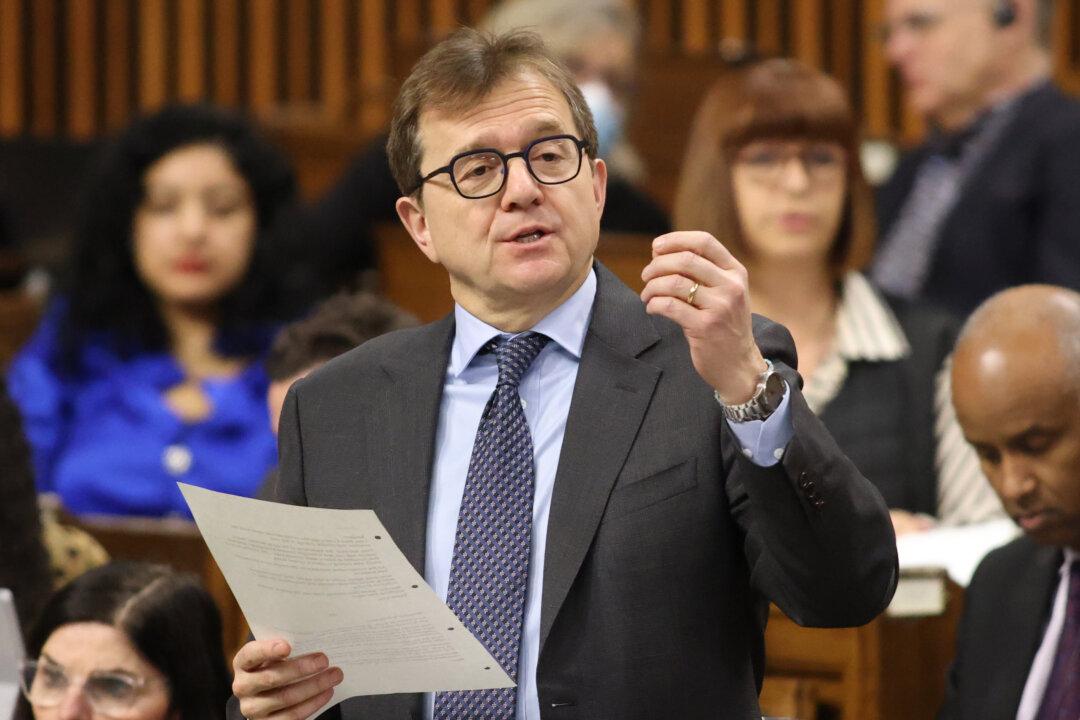In efforts to reach net zero by 2050, Ottawa’s strategy to transform the workforce toward “sustainable jobs”—”green” jobs in a low-carbon economy—sparked extensive criticism from analysts due to its top-down approach and departure from traditional market-based economics.
On Feb. 17—the Friday before a long weekend and overshadowed by the verdict on the government’s use of the Emergencies Act—the feds released its interim Sustainable Jobs Plan for 2023 to 2025.
The government deems a job to be sustainable, if it is “compatible with Canada’s path to a net-zero emissions and climate resilient future.”
Carleton University business professor Ian Lee told The Epoch Times that, although he’s not opposed to decarbonizing the economy and thus not criticizing the intentions of Natural Resources Minister Jonathan Wilkinson, he has significant concerns about the feds’ approach.
The “centralized planning described in the interim plan is a fundamentally different direction from what has been used to manage and develop western economies historically,” he said.
“This has been studied and studied and studied by an enormous number of people for a very long period of time. And the record of central planning has been miserable.”
Lee adds that “centralized planning collapses under its own weight” and needs an enormous amount of information and a “massive bureaucracy” to function, all while stifling innovation and healthy market forces.
Ottawa plans on establishing sustainable jobs legislation this year, which will require future federal governments to prepare and implement action plans starting in 2025 and every five years thereafter.
“With a five-year plan, where everything must be approved long in advance, you create this gigantic bottleneck for decision-making, because everybody has to go in to make sure that they’re in conformity with the [government’s] decisions,” Lee says.
Lee says, “It’s going to require a massive body of public servants evaluating every company, every employer, and every job to determine if it indeed is sustainable.”
The feds are creating a secretariat and a partnership council to oversee the transition, provide information, and coordinate among numerous stakeholders.
‘Subsidized’ Sustainable Jobs
Ottawa envisions the sustainable jobs to be created as being high-quality and well-paying.
“Our main concern with this is that Ottawa could be transitioning people off of six-figure jobs to go to $50,000-a-year jobs, which is not exactly the same thing,” Renaud Brossard, senior director of communications at the Montreal Economic Institute, said in an interview.
Brossard was previously Quebec and Atlantic director with the Canadian Taxpayers Federation.
People flock to the oil and gas industry for its high salaries, he said, noting that currently, green jobs aren’t paying enough.
“This is not creating sustainable well-paid jobs,” Brossard said about Ottawa’s “plan to have a plan.”
He adds that “these are going to be subsidized jobs that Ottawa favours instead of market-based.”
Brossard points out that some towns or villages will become impoverished as their main industry is shut down—not unlike what the cod moratorium did in Newfoundland and Labrador in 1992.
“The problem is the location for where that job creation is going to happen is not necessarily the same location as where these jobs were lost,” he said, adding that the Atlantic province is still feeling the effects today, given its unemployment rate (11.8 percent) being more than double the national level (5.0 percent).
Brossard says that people in Alberta, Saskatchewan, and Newfoundland and Labrador will likely experience a similar fate as the cod moratorium.
Dan McTeague, president of Canadians for Affordable Energy, said in a Feb. 9 commentary that the “ideological drive to shut down an industry,” referring to the oil and gas sector, will be felt especially by workers in Alberta and Saskatchewan.
“It is delusional to imagine that ‘green jobs’ installing turbines and solar panels will replace that,” he wrote.





